This page includes links to volunteer activities that aren’t scheduled. Volunteer date and time are arranged by the partner organization and the individual volunteer. For scheduled activities, check out the Heartwood calendar.
New! To submit a potential volunteer opportunity for chapter consideration, please fill out this form.
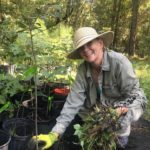
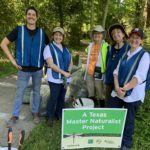
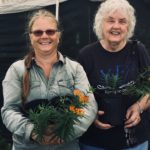
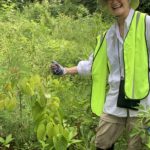
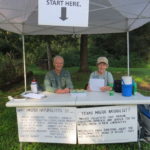
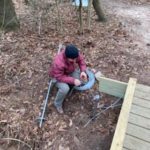
In-person Volunteer Activities With Heartwood Partner Organizations:
Ongoing trail maintenance and volunteer opportunities include: Trail Stewards, Docents, Committees, Interpretive Hike leaders, our Ambassador Program and more! There is something for everyone who is interested in BLC’s mission and service area.
*Specific opportunities do require additional training and education.
For more details, please contact: Karastin Katusin, [email protected]
1. Heartwood has adopted a trail at this Nature Center, so ongoing trail maintenance work is needed. Jesse Jones also needs volunteers for their Green House and a group of volunteers for the invasive plant removal.
RM: J Jones Park & Nature Center (describe activity performed)
2. Summer 2023: Assist Jesse Jones Park staff with a variety of programs this summer. TXMN are needed to lead hikes, read nature stories to children, or assist with the Art in the Park program. Sign up with the Jones Park Community Connections Sign Up Genius Link. Questions? Contact [email protected].
PO: J Jones Park & Nature Center (describe activity performed)
Address: 20634 Kenswick Drive, Humble, Texas 77338, 281-446-8588
Contact: [email protected]
Ongoing volunteer activity to maintain the Forest’s pollinator gardens and other areas. Join our work day every Tuesday, except holidays or inclement weather.
Bring your ideas, enthusiasm, and your own gardening gloves and tools.
To learn more about these opportunities, contact: [email protected].
VMS code: RM: WG Jones State Forest
Volunteers are needed to keep the Visitors Center open, hand out maps, answer questions, recommend sites and trails, point out the locations of the restrooms, and interact with guests in a friendly, welcoming manner
CONTACT JOHN HERRON Park Interpreter for details
(936) 355-9275
[email protected]
VMS: PO:HUNTSVILLE STATE PARK (Specify Volunteered to lead hikes, man the Nature Center, or help with trail maintenance.
Ongoing Tuesdays 8:30-11:30
Trail maintenance, volunteer work crew and garden group.
For information on volunteer opportunities at Kleb Woods, contact [email protected] (281) 357-5324
VMS CODE: RM: Kleb Woods
20303 Draper Rd, Tomball, TX 77377
[email protected]
Hike leaders and sweepers are needed the 3rd Saturday of each month to share the wonders found on the Lake Creek Preserve trails!
Contact Directly: Ruth Nasrullah (713-397-9994) or [email protected]
VMS code: PO: Public Outreach Events (Lake Creek Preserve Guided Hikes)
Summer Camp Counselors and Guest Speakers: We need additional summer camp counselors for three weeks of summer camp and we are looking for guest speakers for any week of camp.
Critter Connection – Week 2: June 12-14 – Kids ages 5-7
Into the Wild – Week 3: June 26-28 – Kids ages 11-13
Squirrel-locke Holmes – Week 5: July 24-26 – Kids ages 5-7
Archery: Every Saturday at 3pm – If you are interested in learning how to teach archery, let us know. We can set up a volunteer training!
Extra Projects: These are projects that can be done at any time. If you would like to do one of them- tell us when you are coming, and we will make sure we have the stuff to finish the project:
Fletching arrows and doing some routine maintenance on the archery range/ equipment.
Invasive removal
Seed collection
Nature Center Shop Weekend Hours:
Shifts for Nature Center Shop: Saturday 11am-3pm and Sunday 11am-3pm
We really need regular Nature Center Shop Volunteers for Saturdays!! If interested, please let us know. This is how we make money to spend back at the park. During the week is available as well *especially during field trips*
Lake Houston Wilderness Park Native Garden Club is back every Friday from 10a-12p.
Please email [email protected] to RSVP.
VMS Code: RM: Lake Houston Wilderness Park: TMN Hours, Native Garden
Mercer Botanical Center – Mercer Botanic Gardens
We welcome adult volunteers with a strong interest in plants/botany. The projects below are popular with volunteers with basic botany/natural science training through citizen scientist programs, such as the Texas Master Naturalist or Texas Master Gardener program…or self-taught botanists! Mercer Botanical Center (MBC) is located at 22540 Aldine Westfield Rd., Spring, TX 77373. Other volunteer locations include Mercer Botanic Gardens (MBG) at 22306 Aldine Westfield Rd., Humble, TX 77338 or the Harris County Prairie Dawn Preserve and additional offsite conservation field sites.
On-the-job training is provided by MBC staff after initial orientation with Mercer Botanic Gardens’ volunteer coordinator, Colleen Powell 713-274-4162.
Once a volunteer is trained, flexible 2 to 3-hour-minimum work sessions are available Monday to Friday, 8 a.m. to 3:30 p.m. Work sessions must be scheduled in advance with Mercer Botanical Center staff at 713-274-4200
OUTDOORS: 8 – 11 a.m. weekdays. Varied locations; weather permitting; gloves and tools provided:
Tuesdays & Thursdays: Endangered Species and Native Plant Garden volunteer: Work alongside horticulturists and botanists on identifying, planting, pruning, nurturing, and weeding for the garden. Interact with visitors and nature. This outdoor classroom is certified as a Best of Texas Wildscape Demonstration Garden and serves as a training location for the Native Plant Society of Texas Landscape Certification Program.
Location: MBG, 22306 Aldine Westfield, Humble.
Seasonally – Conservation Nursery volunteer: Work alongside horticulturists and botanists with native plants for educational displays, restoration, and rare plant stock for the Center for Plant Conservation National Collection of Endangered Plants https://saveplants.org/.
Location: MBC, 22540 Aldine Westfield Rd., Spring.
Seasonally – Field Conservation volunteer: As needed, throughout the year. Work alongside horticulturists and botanists for conservation of rare native plants. Assist with monitoring, collecting, land management, and invasive species removal at the Harris County Prairie Dawn Preserve and locations throughout east Texas.
INDOORS: 8 a.m. to 3:30 p.m. weekdays. Mercer Botanical Center at 22540 Aldine Westfield Rd., Spring.
New! Herbarium Specimen Imaging volunteer and intern opportunity:
Work as a team or work independently to image native plant herbarium specimens at the MBC. The Texas Oklahoma Regional Consortium of Herbaria (TORCH) National Science Foundation (NSF) Grant project ongoing at Mercer is facilitated by TX A&M herbarium partners. Imaging and documentation of Mercer (MERCA) and historical Houston ISD Spring Branch Science Center (SBSC) herbarium specimen collections allows global online access. Over 50,000 MERCA and SBSC herbarium specimens are maintained by Mercer Botanic Gardens as a reference for the public and scientific community. A weekly commitment is preferred.
Herbarium Curator volunteer: Detail-oriented, required and a knowledge of Microsoft Office is a plus, for those volunteers interested in onsite database work and often includes organization and detailed filing of herbarium specimens by verifying plant names for long-term management of the collection. This work is essential as the basis for the documentation, conservation, research, and for education about rare, native, and non-native display plants of MBG; new and historical collections for the checklist of Houston metro area flora; collections from the Gulf Coast area, U.S., and international locations. A weekly commitment is preferred.
Herbarium Restoration volunteer: Organization, detailed filing, and restoration of herbarium specimens for long-term management of historical and new specimen collections.
A weekly or monthly commitment is preferred.
Herbarium Specimen Mounting volunteer: Use your artistic ability, attention to detail and patience to prepare newly collected or historical herbarium specimens: adhere plants onto herbarium paper for a permanent record for authentication for taxonomic, genetic, ecological research; and educational outreach. A monthly commitment is preferred.
Engraver/Signage volunteer: Assist staff with the production of aluminum and plastic labels for Mercer educational plant displays. Assist with disassembly, cleaning and filing of sign holders and labels. A monthly commitment is preferred.
Seasonally – Seed Project volunteer: As needed, throughout the year. Clean and prepare seed for long-term storage for local and national rare native plant seed banks. Assist with germination trials.
Contact Colleen Powell 713-274-4162 for additional citizen scientist projects: Wednesday morning Mercer Volunteer Native Plant Propagation Team; Mercer beehive program; seed cleaning native and garden seeds for Mercer’s March Mart sale attendees; Mercer’s garden tour docent program, etc..
November 2023 Anita Tiller, M.S. Botanist, Mercer Botanical Center-Mercer Botanic Gardens, contact [email protected] for questions.
Texas Waters Specialist
Join the corps of well-informed volunteer specialists who provide education, outreach, and service to keep our local water bodies healthy by volunteering right here at home. This unique certification program is made possible by the Texas Parks and Wildlife Department (TPWD) and The Woodlands Township Environmental Services Department. Visit our Texas Waters Specialist webpage for more details on how to get certified as a Texas Waters Specialist.
VMS code: AT: Tx Waters Certification Program
VMS code for volunteering will depend on the individual activity.
NOTE: Visit https://thewoodlandstownship-tx.gov/931/Water-Conservation for more information about all of these initiatives.
1. Install educational markers on storm drain inlets throughout the Township. Work on your own schedule based on weather constraints. Contact Teri MacArthur in ES to arrange pick up of maps, supplies, and markers at [email protected] or 281-210-3928.
A volunteer tutorial on how to install should be viewed in advance on the ES YouTube Channel: https://www.youtube.com/watch?v=1ioJl-yvjYA&list=PLik9T8BrmOmzNPiXtRv5zh5uKlgv7LSnr&index=2
2. Educate Township residents about the issue of pollutants in storm water runoff by hanging educational information on neighborhood doors. Can be combined with storm drain marking, or done as a stand alone project. Maps and door hangars can be picked up at Environmental Services by appointment. Contact Teri MacArthur using the email and/or phone number above in Item #1.
3. Want to help reach dog owners directly to spread the word that putting dog waste in the TRASH will help reduce waterway pollutants? Visit Township Dog Parks to provide visiting dog owners with educational information and a carabiner to hang on their dog’s leash so the dog carries home its own poop for disposal! Contact Teri MacArthur using the email and/or phone number above in Item #1.
Join the Invasive Plant Task Force to help eradicate Air Potato and other invasive plants along The Woodlands trails. The team meets monthly at various locations.
Contact: Lisa Houston at [email protected]
Ongoing Monitoring / Project Activities
The Adopt-A-Loop program involves documenting wildlife along our designated sites in iNaturalist or eBird. Heartwood’s designated sites on the GTWT are Lake Houston Wilderness Park, W.G. Jones State Forest, Trinity River Bridge-Hwy.19, Huntsville State Park, and Stubblefield Recreation Area. These sites are part of the Trinity Loop and the Big Sandy Loop.
View the Adopt-A-Loop slides to learn more about this project.
Please contact Krien VerBerkmoes at [email protected] for more information.
Download the Nest watch app, place a blue bird nesting box on your property, upload your nest location onto the app and log your monitoring hours !
VMS CODE FR: Bluebird Monitoring Nest watch: TMN Field Research Hours
The following conditions must be met for time entering eBird data to count as service:
1. Provide the following description for reporting eBird hours in VMS: “Texas Master
Naturalists can record hours submitting data into eBird for chapter-approved projects that
meet the definition of formal surveys. When reporting eBird hours, volunteers should be
specific in identifying the project/type of eBirding done, duration, party size, distance
covered, and (when possible) numbers of birds/species detected.”
2. Time spent collecting bird data in a Chapter-approved formal survey should be logged
under a project for that survey and not towards an eBird service project. Generally
speaking, Chapters should not approve casual, or incidental birding activities as a formal
bird survey. Official surveys are activities that have formal protocols that dictate time,
season, duration, location, and methods of monitoring birds. Official surveys may be
national protocols or local projects, but they should always seek to answer a research
question. Generally speaking, formal surveys at the local level are designed and conducted
in coordination with the land manager.
3. If survey protocols do not require/enable participants to log data into eBird during the
survey, one participant from the survey group may collect “eBird service hours” for time
spent entering data into eBird after the event. Generally speaking, this should be no more
than 15 minutes.
4. If participants are conducting non-survey (personal/incidental) birding trips, and choose
to enter data into eBird while they bird, one person per group may code a maximum of 15
minutes of eBird time per trip. Incidental birding can occur anytime outside of focused or
specific survey/project, i.e for personal enjoyment or leisure.
Time spent volunteering on national surveys (including, but not limited to those below)
should be logged under Chapter-approved projects for these specific projects. Time for
eBird data entry may not be counted for these national surveys.
i. Audubon Christmas Bird Count
ii. Great Backyard Bird Count
iii. USGS Breeding Bird Survey
iv. Project FeederWatch
v. Project NestWatch
vi. Great Texas Birding Classic Events
vii. Audubon’s Climate Watch
viii. Audubon’s Hummingbirds at Home
VMS CODE : FR: ebird Monitoring: TMN Field Research Hours
Volunteers Asked to Report Monarch Winter Sightings
Each fall, thousands of monarch butterflies stream across the southern U.S. on their journey to wintering grounds in central Mexico. In the spring, this eastern population of monarchs returns to the U.S. and Canada to breed.
But not all monarchs migrate to Mexico. Some breed throughout the winter in the southern U.S., and scattered reports show that other monarchs might overwinter here in a non-reproductive state.
Researchers and others studying monarchs are seeking more information to understand why and what it might imply for monarchs, a candidate for listing under the federal Endangered Species Act.
For this, they need the public’s help.
In a collaborative effort, Journey North, Monarchs Across Georgia, the University of Georgia and the Georgia Department of Natural Resources are encouraging people to report monarch sightings from December through March in the coastal states of Texas, Louisiana, Mississippi, Alabama, Georgia, Florida, South Carolina, and North Carolina.
Join the Effort
Step 1: Create a free account with Journey North at journeynorth.org/reg.
Step 2: Learn how to report monarch sightings at journeynorth.org/monarchs.
Step 3: Submit monarch observations from December–March at journeynorth.org/sightings.
VMS code: FR: Other Partners (Journey North’s Overwintering monarch watch)
To learn more about the project go to http://springcreekpatnership.com
VMS Code: RM Other locations: TMN reporting hours (Spring Creek Watershed Project)
Bayou Land Conservancy is looking for Spanish speakers who can lead hikes on the Spring Creek Nature Trail to engage more users on the trail. People only protect those things they love. Creating that bond between the natural spaces and the people who use them will ensure that the trail will have support for years to come. Share your love for the outdoors! Contact Becky Martinez, Conservation Director at 281-576-1634.
The Woodlands Watershed Project Committee meets on the first Wednesday of each month, starting at 3:30 pm. The Committee reviews, plans and actions water related education and volunteer opportunities in our community. A brief report and informative update is published in The Heartwood Herald following each Committee meeting.
Anyone with an interest in our local waters and associated volunteer work is cordially invited to attend. Please contact Teri MacArthur if you would like to be included in the monthly meeting invitation.
VMS CODE: RM Woodlands Township – Natural Resource Management: TMN Report Hours.
N.B. Tick the box for “Texas Waters Specialist”


